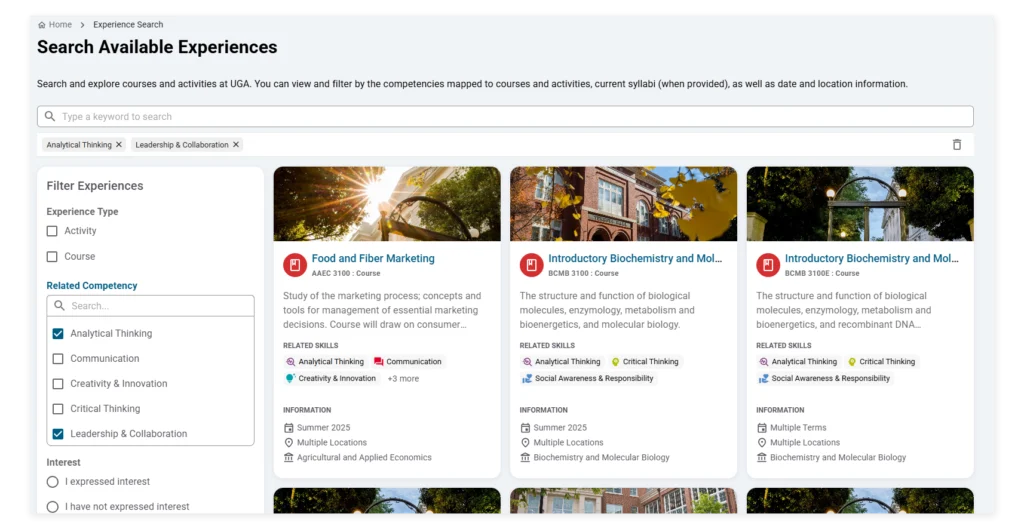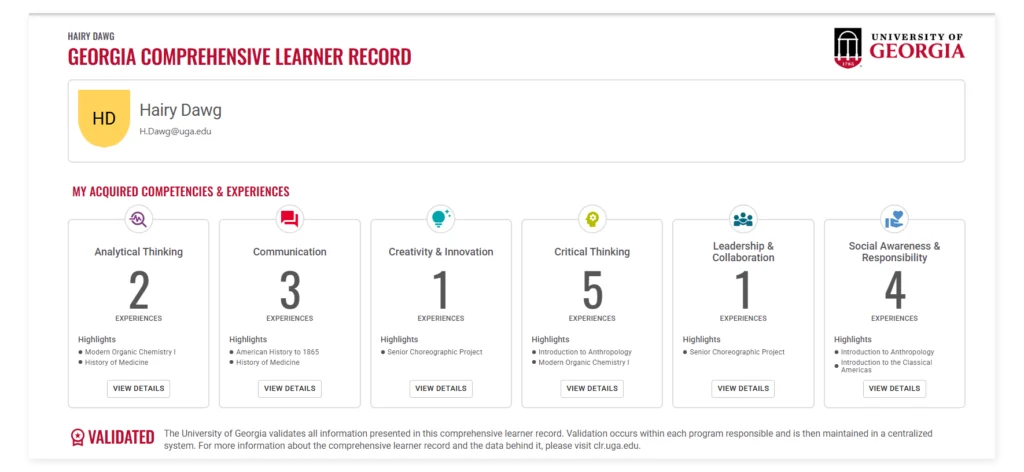SEE WHAT ELSE WE HAVE TO OFFER AT UGA.EDU
SEE WHAT ELSE WE HAVE TO OFFER AT UGA.EDU
UGA’s latest innovation translates student skills to help them succeed
Whether interviewing for a job, applying for a graduate program, or pursuing other opportunities, students need to effectively communicate their skills to succeed. The University of Georgia has pioneered a new way to do just that: the Comprehensive Learner Record (CLR).
For decades, students have been limited by the standard academic transcript, which shows academic performance but fails to capture ‘soft’ skills—like critical thinking and leadership—despite their growing importance in today’s post-graduation landscape.
To solve this, UGA has developed the CLR, an innovative tool that assigns uniquely practical credentials to academic experiences and other activities, showcasing students’ excellence in a way that’s never been done at such a scale.



